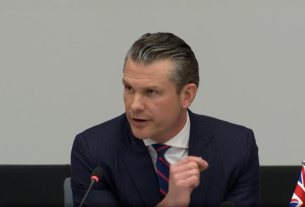The UN’s relief chief, Martin Griffiths, is urging for a ceasefire in Gaza to be upheld amid ongoing violence that continues to threaten civilians. Griffiths, head of the UN’s humanitarian office, warned that the lives of many innocent people depend on an immediate end to the fighting between Israeli forces and Palestinian groups.
The situation in Gaza has deteriorated significantly over recent months, with daily clashes causing widespread destruction and loss of life. Griffiths emphasized that the international community must act now to prevent further harm to civilians, many of whom are already struggling with limited access to food, water, and medical care.
In Sudan, the crisis is even more severe, with reports describing “ruthless assaults” on civilians as the conflict between military factions escalates. Thousands of people have died since the fighting began, and many more are living in fear of further violence.
The UN warns that the Sudanese conflict has led to widespread displacement, as many people flee their homes to escape the fighting. In addition to the violence, the country faces a severe lack of basic necessities, including food, medical supplies, and clean water.
Griffiths called on global leaders to take immediate action to address both crises. “We cannot afford to ignore the suffering of innocent people,” he said, stressing that humanitarian aid must reach those most affected by the conflict. He highlighted that the international community’s ability to intervene is crucial to preventing further bloodshed.
The humanitarian situation in both Gaza and Sudan has been exacerbated by the challenges of providing aid in conflict zones. Supply lines have been interrupted, and local infrastructure has been damaged, making it difficult for aid organizations to deliver essential services to those in need. Griffiths urged for greater coordination between governments, humanitarian agencies, and local organizations to ensure that assistance reaches the most vulnerable populations.
As violence in both regions continues, international efforts to mediate peace remain stalled. In Gaza, multiple ceasefire attempts have failed, and the ongoing tension between Israel and Palestinian groups shows no sign of easing. Similarly, in Sudan, peace talks between the warring factions have made little progress, leaving the country trapped in an endless cycle of violence.
On February 4, the world also observed World Cancer Day, which serves to raise awareness about the global fight against cancer. This year’s theme focuses on improving access to cancer treatment, particularly in low-income areas, where medical resources are often scarce.
The observance of World Cancer Day underscored the challenges faced by many countries in providing essential healthcare services, including cancer treatment. The global health crisis caused by ongoing conflicts in Gaza and Sudan further highlights the need for immediate action to address health-related issues in conflict zones.
As the humanitarian situation worsens in both Gaza and Sudan, funding for aid efforts continues to be a major challenge. Humanitarian organizations are facing severe shortages in both financial and material resources, making it difficult to support the growing number of people in need. International donors are being urged to increase support for these critical efforts.
The international community remains divided over how best to address the ongoing crises in both regions. While calls for a ceasefire in Gaza and immediate humanitarian assistance in Sudan grow louder, the political complexities of both conflicts continue to complicate efforts for lasting peace and stability.
As the situation in Gaza and Sudan remains dire, the need for coordinated global action to protect civilians and provide humanitarian aid has never been more urgent. The world is watching, and the pressure is mounting for decisive action to alleviate suffering and end the violence.




